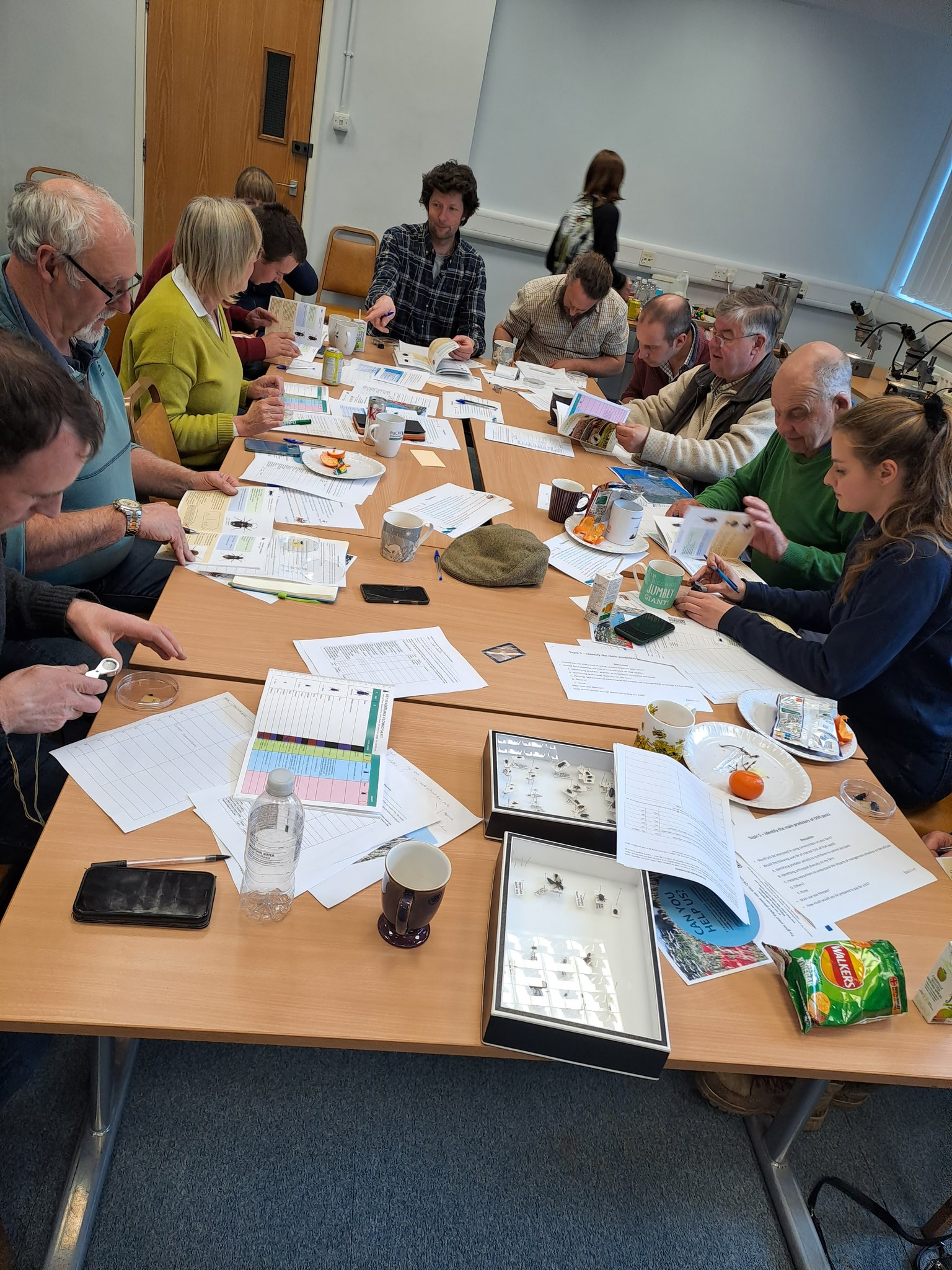MEMBERS VIST TO ROTHAMSTED RESEARCH - 27 March 2023
Posted March, 31st, 2023
BASE-UK Visit to Rothamsted Research - 27 March 2023
Results from the Europe-wide EcoStack project, help with identifying predators of oilseed rape pests and a look at potential genetic solutions to cabbage stem flea beetle attack were on the agenda at the recent BASE-UK members workshop at Rothamsted Research.
Thanks to the efforts of Dr Sam Cook and her team, attendees were able to understand more about the role of agroecological practices in increasing populations of natural enemies and supporting plant health, while also delivering soil health benefits.
The results show that there are various nature-based practices farmers can employ to either reduce pest numbers or have an impact on the crop – from growing variety blends to raise yields and reduce disease pressure to reducing tillage in oilseed rape rotations to boost parasitoid survival.
In the oilseed rape crop, planting bespoke flower margins containing species attractive to beneficials, using appropriate companion crops to delay the arrival of pests and reducing tillage to improve parasitoid survival were also shown to be effective.
While further work is needed to refine some of these practices to improve pest regulation, their place on farms is key to optimising ecosystem service delivery and enhancing the sustainability of food production – as many of our members already know.
Opinions on the findings were sought – resulting in a valuable two-way flow of information on the practicalities, feasibility and problems associated with making changes on-farm.
The EcoStack project, which has 22 partners from 13 countries, has been running for five years and, as the name suggests, is looking at the effect of stacking different practices in fields, farms and landscapes.
A carabid beetle identification session was run by Dr Kelly Jowett, researcher and author of the ‘Farmland Carabids Identification Guide’, so that attendees got a closer look and better understanding of the 30 or so carabid species found in UK farmland.
After that, a quick tour of oilseed rape plots revealed some of the work being done to look for genetic solutions to cabbage stem flea beetle and other pests.
Of the 20 varieties with known genetic backgrounds in the plots, two had a trait identified by the John Innes Centre which gives the plants tolerance to flea beetle larvae infestations.
Next year, Rothamsted will be looking at varieties with adult beetle tolerance.
EcoStack Project – Main Findings
- UK farmers use an average of 7 agroecological practices on farm, compared to 4.5 practices in Europe.
- Variety blends help to regulate disease, reduce pest numbers and boost yield.
- Companion planting helps with weed control, nitrogen management, soil health and pest control.
- Bespoke flower margins can help with pest control, but are species dependent, as some wildflowers are more attractive than others. Pollinators and parasitoids prefer different plant species
- Carabids and rove beetles are important predators of pollen beetle and pod midge larvae.
- Parasitoid emergence is highest in no-till situations and the effect increases with time.
Thanks to Sam Cook, Kelly Jowett and the team at Rothamsted for a fantastic day and the picture below.

Recent Posts
BASE-UK - ANNUAL CONFERENCE 2024 - SIX INCHES OF SOIL PREVIEW
BASE-UK - ANNUAL CONFERENCE 2024 DAY 2 - HANNAH FRASER
BASE-UK - ANNUAL CONFERENCE 2024 DAY 2 - RICHARD JENNER
BASE-UK - ANNUAL CONFERENCE 2024 DAY 2 - DAVID GOODWIN
BASE-UK - ANNUAL CONFERENCE - DAY 2 - JAY FUHRER PART 2
BASE-UK - ANNUAL CONFERENCE DAY 2 - JAY FUHRER PART 1
BASE-UK - ANNUAL CONFERENCE DAY 1 - SPEAKER PANEL
BASE-UK - ANNUAL CONFERENCE DAY 1 - BEN ADAMS
BASE-UK - ANNUAL CONFERENCE DAY 1 - TOBY SIMPSON
BASE-UK - ANNUAL CONFERENCE DAY 1 - ALEX FRASER
